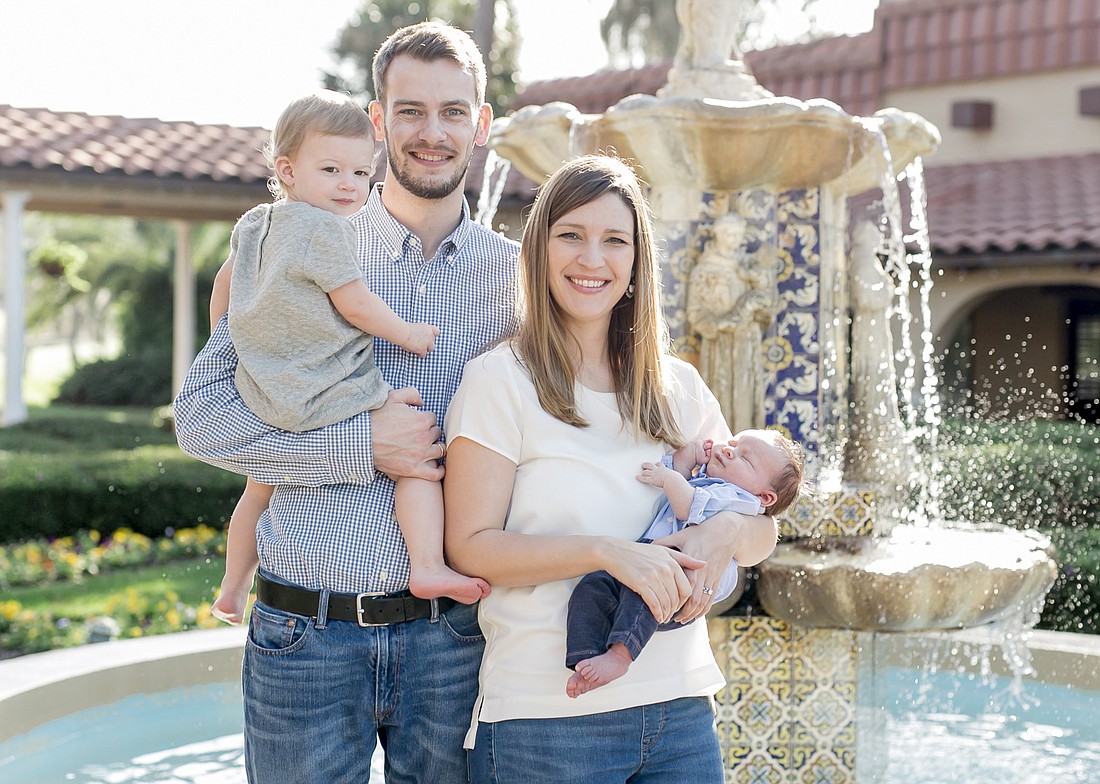- December 13, 2025
-
-
Loading

Loading

The world of medicine is constantly changing, and thanks to the development of robotics, there are some practices where work is done almost exclusively through the use of robotic technology.
One such place is Mid-Florida Surgical Associates — which has locations in Ocoee and Clermont. The practice also performs surgical work for Orlando Health’s South Lake Hospital, Orlando Health — Health Central Hospital and the new Horizon West hospital.
The practice’s use of technology is what brought Dr. Alexander Schroeder aboard in July after he graduated from Creighton University.
“They are heavy into robotics,” Schroeder said. “Basically, the surgeons working in that practice sort of pioneered robotics in this area. They started out when the first robotics systems came on the market, and really, the senior partners trained all of the other surgeons in the mid-Florida area on the robot.”
Schroeder was inspired to go into medicine by his father, a surgeon in his home country of Germany. And although he’s had his fair share of medical education — Schroeder studied at the University of Hamburg before doing a five-year residency at the Creighton University School of Medicine — it was only about three or four years ago when he discovered the wonders of robotic surgery during a meeting in Germany.
During that event, Schroeder watched videos that showcased how one doctor — Dr. Conrad Ballecer — utilized robotics with hernia surgeries. Schroeder, who performs general surgery but specializes in hernia surgery, was fascinated.
“What really amazed me was that there are a lot of procedures that can be done laparoscopically without the robot — through small incisions — with long instruments and a camera, but your hand is at the end of the instrument, versus the robot where you also use a long instrument but then you have the robot interface in between,” Schroeder said. “I always thought, ‘What is the true advantage?’
“In the field of hernia surgery, the robot basically allowed for the development of completely new techniques,” he said. “So, instead of putting mesh inside of the abdomen — where it has contact potentially to bowels and can form adhesions and scar tissue — the robot allowed for new techniques to put it into the layers of the abdominal wall, so it allows for ... precise dissection of spaces where we fix the hernia and put the mesh.”
Toward the end of his training, Schroeder connected with Ballecer — who was practicing in Phoenix — and asked about possibly working alongside him. Ballecer agreed, and Schroeder received approval from Creighton to start an externship.
Schroeder had performed simulation after simulation with what it would be like to use robotics for surgery, so by the time he got to Phoenix, he was both excited and prepared. Being comfortable helped, but more than anything, it was having someone as experienced as Ballecer by his side that really helped him succeed.
“You can’t just sit down and say, ‘Hey, I’m going to use the robot now.’ You have to go and find a surgeon or mentor who is willing to share with you what he knows and shows you how he does things successfully,” Schroeder said. “That’s the only way to do it safely.”
The machine itself — called a da Vinci Surgical System — is like something straight out of a science-fiction film.
The machine has four arms with tools at the end of each, and it is controlled by a surgeon via a console that has a monitor and controls. It’s high-tech, and South Lake, Health Central and the new Horizon West hospital each utilize the device — the machine at South Lake actually has a unique da Vinci Surgical System.
“Right now at South Lake Hospital, we have two consoles that are connected with the actual robot, so you can actually do cases with another surgeon,” Schroeder said. “You can pass instruments digitally back and forth — your proctor can take over for you or you can give it to someone you proctor yourself.
“That’s something I really think is a really cool thing — you can learn new techniques, you can make sure you’re as efficient as you can be, and you can invite a colleague and say, ‘Hey, do you want to do this case with me together and kind of see how I do things?’ So it allows for constant learning and improvement.”
It’s that ability to constantly improve and a desire to help people that led Schroeder to Mid-Florida Surgical Associates.
“The reward is when things go well, you see your patient afterwards in your clinic and they’re happy, and you’re happy that everything went well — you actually helped somebody … it’s immediate gratification,” Schroeder said. “And the second thing is obviously getting better at what you’re doing — that’s gratifying, too.”